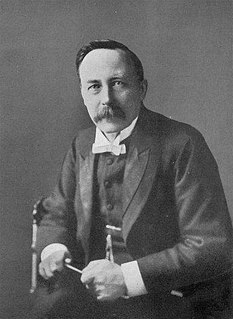A Quote by Anselm of Canterbury
It is, therefore, not proper for God thus to pass over sin unpunished.
Related Quotes
Sin is: before God, or with the conception of God, in despair not to will to be oneself, or in despair to will to be oneself. Thus sin is intensified weakness or intensified defiance: sin is the intensification of despair. The emphasis is on before God, or with a conception of God; it is the conception of God that makes sin dialectically, ethically, and religiously what lawyers call 'aggravated' despair.
The magnitude of the punishment matches the magnitude of the sin. Now a sin that is against God is infinite; the higher the person against whom it is committed, the graver the sin-it is more criminal to strike a head of state than a private citizen-and God is of infinite greatness. Therefore an infinite punishment is deserved for a sin committed against Him.
God has decided the rules of life, whereby you don't trespass on anybody else's rights, and sin is something that upsets the balance of things. There are three types of sin: sin against yourself; sin against other people; and sin against God. People often sin against themselves and others and misbehave with God, too.
Repentance out of mere fear is really sorrow for the consequences of sin, sorrow over the danger of sin — it bends the will away from sin, but the heart still clings. But repentance out of conviction over mercy is really sorrow over sin, sorrow over the grievousness of sin — it melts the heart away from sin. It makes the sin itself disgusting to us, so it loses its attractive power over us. We say, ‘this disgusting thing is an affront to the one who died for me. I’m continuing to stab him with it!’
What is sin? It is the glory of God not honored. The holiness of God not reverenced. The greatness of God not admired. The power of God not praised. The truth of God not sought. The wisdom of God not esteemed. The beauty of God not treasured. The goodness of God not savored. The faithfulness of God not trusted. The commandments of God not obeyed. The justice of God not respected. The wrath of God not feared. The grace of God not cherished. The presence of God not prized. The person of God not loved. That is sin.
Our first problem is that our attitude towards sin is more self-centred than God-centred. We are more concerned about our own "Victory" over sin than we are about the fact that our sin grieve the heart of God. We cannot tolerate failure in our struggle with sin chiefly because we are success oriented, not because we know it is offensive to God.





































